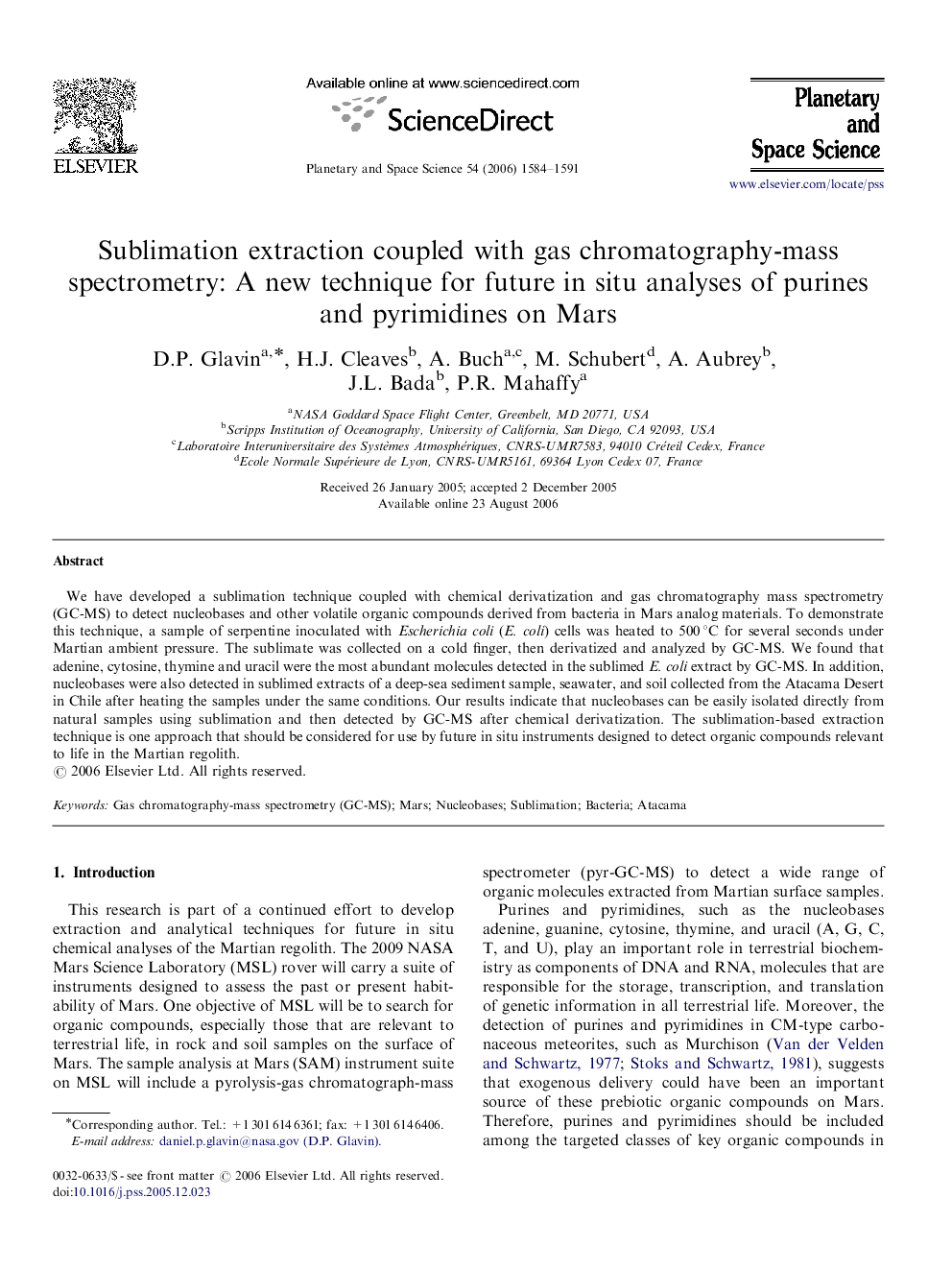| Article ID | Journal | Published Year | Pages | File Type |
|---|---|---|---|---|
| 1782772 | Planetary and Space Science | 2006 | 8 Pages |
We have developed a sublimation technique coupled with chemical derivatization and gas chromatography mass spectrometry (GC-MS) to detect nucleobases and other volatile organic compounds derived from bacteria in Mars analog materials. To demonstrate this technique, a sample of serpentine inoculated with Escherichia coli (E. coli) cells was heated to 500 °C for several seconds under Martian ambient pressure. The sublimate was collected on a cold finger, then derivatized and analyzed by GC-MS. We found that adenine, cytosine, thymine and uracil were the most abundant molecules detected in the sublimed E. coli extract by GC-MS. In addition, nucleobases were also detected in sublimed extracts of a deep-sea sediment sample, seawater, and soil collected from the Atacama Desert in Chile after heating the samples under the same conditions. Our results indicate that nucleobases can be easily isolated directly from natural samples using sublimation and then detected by GC-MS after chemical derivatization. The sublimation-based extraction technique is one approach that should be considered for use by future in situ instruments designed to detect organic compounds relevant to life in the Martian regolith.
